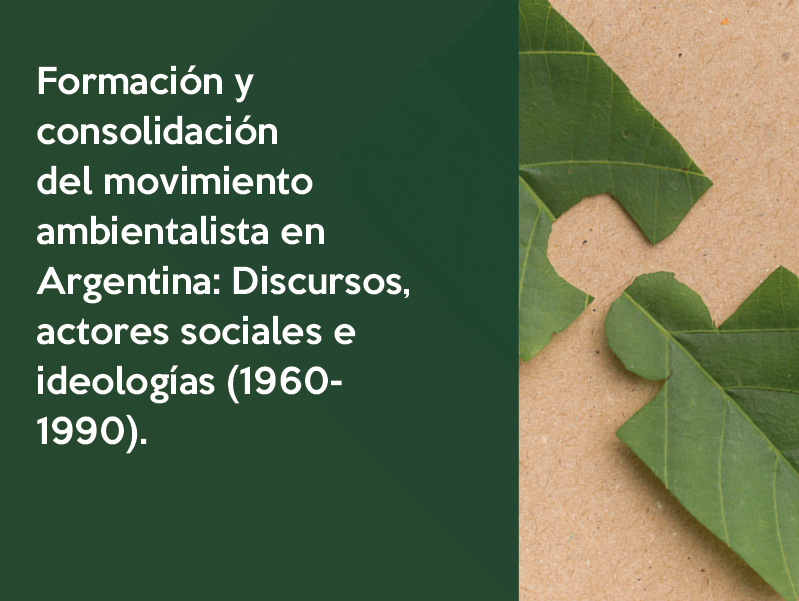Formation and Consolidation of the Environmental Movement in Argentina: Discourses, Social Actors, and Ideologies (1960-1990)
DOI:
https://doi.org/10.30827/revpaz.16.31176Keywords:
Environmental History , Print Media, Counterculture, Discourse, Environmentalism, Environmental Justice, Peace, ConflictsAbstract
The general objective of this research is to analyze the emergence, formation, and consolidation of environmentalist discourse in Argentina through the study of print media. The media are considered, on the one hand, as bearers of symbolic power and, on the other, as a source of historical information that allows us to understand socio-environmental dynamics and their cultural repercussions in the recent past. To achieve this objective, a holistic and interdisciplinary approach is adopted, establishing the interconnection between environmental history, communication, and critical discourse studies. The selected sources include countercultural magazines such as Eco Contemporáneo (1960s), Expreso Imaginario (1970s), and Mutantia (1980s), as well as national newspapers such as La Nación, Clarín, and Página/12. This research is conducted through a historical-environmental approach focused on the emergence of environmentalist discourse and its implications for social and environmental justice. By integrating the perspective of peace and conflict studies, it demonstrates how the Argentine environmentalist movement contributes to the construction of sustainable peace, understood as a process that includes environmental and social justice.
Downloads
References
Beck, U. (1995). Ecological Politics in an Age of Risk. Cambridge, Polity Press.
Bullard, R. D. (1994). Dumping in Dixie: Race, Class, and Environmental Quality. Westview Press.
Carruthers, D. V. (Ed.). (2008). Environmental Justice in Latin America: Problems, Promise, and Practice. Cambridge, London: MIT Press.
Castro Osorio, L. (2009). Representaciones del medio ambiente: La construcción social del riesgo ambiental. Bogotá, Editorial Universidad del Rosario.
Douglas, M. (1982). Risk and Culture: An Essay on the Selection of Technological and Environmental Dangers. University of California Press.
Escobar, A. (1999). After Nature: Steps to an Antiessentialist Political Ecology. Current Anthropology, 40(1), 1-30.
Fairclough, N. (1995). Critical Discourse Analysis: The Critical Study of Language. Londres, Longman.
Galtung, J. (1969). Violence, Peace, and Peace Research. Journal of Peace Research, 6(3), 167-191.
Guha, R., & Martínez-Alier, J. (1997). Varieties of environmentalism: Essays North and South. London, Earthscan.
Heiman, M. K. (1997). Science by the People: Grassroots Environmental Monitoring and the Debate Over Scientific Expertise. Medford Tufts University.
Leal, C. (2005). Presentación del dossier sobre historia ambiental latinoamericana. Historia Crítica, (julio/diciembre), 5-11.
Lezama, J. L. (2004). La construcción social y política del medio ambiente. Ciudad de México, Porrúa.
Martínez-Alier, J. (2002). The Environmentalism of the Poor: A Study of Ecological Conflicts and Valuation. Cheltenham Edward Elgar Publishing.
McNeill, J. R. (2005). Something New Under the Sun: An Environmental History of the Twentieth-Century World. Nueva York, W. W. Norton & Company.
Palacio, G. (2002). Construcciones de la Naturaleza: Ecología, Ciencia y Política. Bogotá, Editorial Norma.
Pellow, D. N. (2016). Toward a Critical Environmental Justice Studies: Black Lives Matter as an Environmental Justice Challenge. Du Bois Review: Social Science Research on Race, 13(2), 221-236.
Thompson, J. B. (1995). The Media and Modernity: A Social Theory of the Media, Stanford University Press.
Wapner, P. (1996). Environmental Activism and World Civic Politics. Albany, SUNY Press.
Zarrilli, G. A. (2011). Historia ambiental: nuevas miradas y perspectivas en la historiografía argentina. En N. Blacha-Girbal & B. Moreira (Eds.), Producción de conocimiento y transferencia en las Ciencias Sociales (pp. 53-74). Buenos Aires, Imago Mundi Ediciones.

Downloads
Published
How to Cite
Issue
Section
License
Esta obra está bajo una licencia internacional Creative Commons Atribución 4.0.













